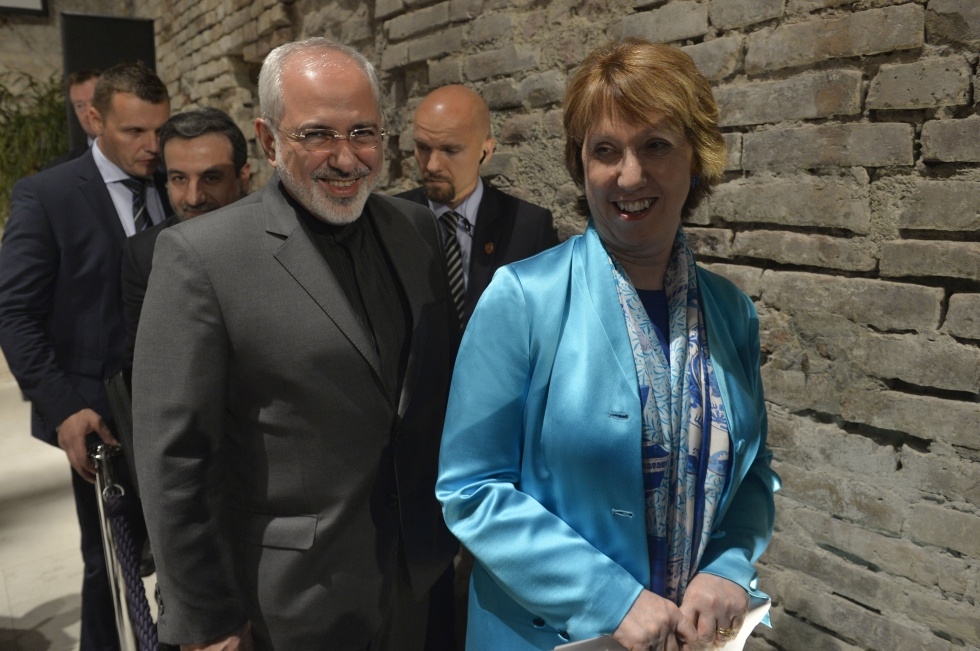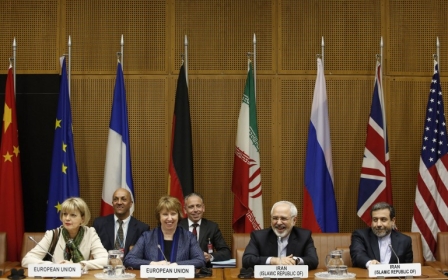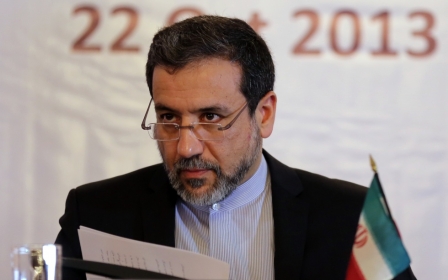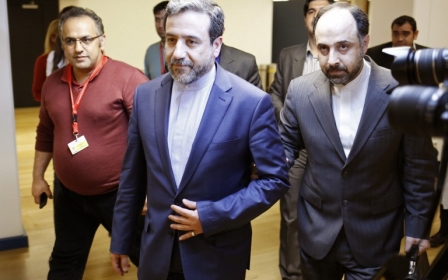Battle lines drawn in Washington over Iran talks

Washington, DC - In the week since the P5+1 - the five permanent members of the Security Council (Britain, China, France, Russia, and the United States) and Germany - agreed to extend the nuclear talks with Iran for an additional four months, the American political landscape has revealed a deep divide regarding how to interpret the decision. The new deadline, November 24, 2014, falls on the one year anniversary of the Joint Plan of Action (JPA), which had set out a roadmap for the rollback of Iran’s controversial nuclear enrichment program.
Within the US, divisions are split into two competing camps. On the one side, there are those within Congress and the pro-Israel community, who are steadfast in their opposition to any deal with Iran. Since the election of Iran’s moderate president, Hassan Rouhani, this group has been pressing the Obama administration to impose additional sanctions against Iran, or a least indicate a more robust military threat - either real or imagined - from the United States or Israel. This camp believes that a genuine military threat will give the American negotiating team enough leverage to force Iran into making the concessions necessary to secure a deal.
However, on the other side, realists in the Obama administration and at the State Department believe the exact opposite. Their fear is that any unilateral action taken by Congress could scuttle the talks altogether and leave the US empty handed. Indeed, as President Obama made perfectly clear in his State of the Union Address last January: “if this Congress sends me a new sanctions bill … that threatens to derail these talks, I will veto it. For the sake of our national security, we must give diplomacy a chance to succeed.”
On July 25, the two camps collided during a congressional hearing of the House Committee on Foreign Affairs, held to discuss the extension of the Iran nuclear talks. Testifying before the committee was Assistant Secretary of State for Political Affairs Wendy Sherman, who is the lead American negotiator at the nuclear talks, and Treasury Under Secretary for Terrorism and Financial Intelligence David Cohen, the administration’s point man on enforcing the existing sanctions against Iran.
However, even before the hearing began, it was clear that the committee’s chairman, Rep. Ed Royce (R-CA), was not pleased with the extension. In a statement posted on the Foreign Affairs Committee’s website, he called for increasing economic pressure on Iran, believing it would strengthen America’s hand in negotiations and said that the President “should welcome congressional efforts to ratchet up the economic pressure on Iran.”
In her statement addressing Royce’s concerns, Sherman emphasized that her goal in the negotiations is “to prevent Iran from obtaining a nuclear weapon.” She asserted that the P5+1—Britain, China, France, Russia, the United States and Germany - has managed to establish “a basic metric for a good agreement, one that cuts off all of Iran’s potential paths to a nuclear weapon.”
Sherman indicated that the highly technical talks with the Iranians have been quite productive, though some substantive issues still needed to be worked out, including the overall question of enrichment capacity. In explaining why the US agreed to the extension, she said, the negotiating team had “seen significant progress in the negotiating room and because we can see a path forward, however difficult, to get to a comprehensive plan of action.”
She argued that the JPA “has temporarily blocked each of the paths that Iran would need to go down to build a nuclear weapon.” Noting that the JPA’s critics had openly doubted whether Iran would keep its commitments, Sherman countered that, according to the IAEA, “Iran has done what it has promised to do during these past six months,” including oxidizing much of its uranium stockpile, which rendered it no longer capable of producing a nuclear weapon. “The result,” Sherman argued, “is a nuclear program that is more constrained, more transparent, and better understood than it was a year ago, a program that has been frozen for the first time in almost a decade.”
While the State Department has been focused on negotiating with Iran, the Treasury Department has been waging an aggressive campaign to target those individuals and companies that have violated the existing sanctions. In his testimony, Cohen openly disputed claims that the limited sanctions relief that Iran has been given is a result of both its cooperation and meeting key benchmarks set in the JPA to materially improve the Iranian economy.
“It hasn’t,” Cohen remarked. “The depths of Iran’s economic distress … dwarfs the limited relief in the Joint Plan of Action.” Today, as the US begins to implement the extended JPA, which includes additional economic relief should Iran continue to meet benchmarks, Cohen believes, “Iran remains in a deep economic hole.” Qualifying his statements, Cohen pointed out that the value of Iran’s currency has declined by 7 percent, since the JPA was announced last fall. Indeed, since 2011, Iran has lost $120 billion in oil revenues, $20 billion of which has been lost since the JPA came into effect. These figures clearly undercut the arguments of the Obama administration’s primary critics on its Iran policy.
This did not matter. Royce is firmly opposed to negotiations with Iran. He cited “non-proliferation specialists,” who had told the committee that “even if Iran’s centrifuges were drastically cut to 4,000, Iran would still have a breakout capacity of just three months.” In particular, he was concerned about the recent comments from Iran’s Supreme Leader, Ayatollah Khamenei, who had suggested Iran’s long-term objective was the creation of an “industrial-scale enrichment capacity” of 190,000 centrifuges - Iran currently has 19,000.
Royce also raised concerns about the so-called “sunset clause” of the agreement. “Many don’t realize that any limits placed on Iran’s nuclear program as part of a comprehensive solution will expire.” He saw a final agreement with Iran as “just another interim step, with the real final step being the treatment of Iran as any other non-nuclear weapon [Nuclear Non-Proliferation Treaty] state.”
Going further, he argued that Iran, with good behavior, would in a few years time no longer be subject to sanctions or restrictions on procurement of nuclear items or the number of centrifuges it could spin. “With such status,” he continued, “Iran could enrich on an industrial-scale, claiming the desire to sell enriched uranium, as does France. Iran could also enrich uranium to levels near the weapons grade, claiming the desire to power a nuclear navy.”
Other members of the committee were equally as hardline. For instance, Rep. Brad Sherman (D-CA) called for additional sanctions and recommended that the US provide Israel with the GBU-57 Massive Ordnance Penetrator (MOP) bunker busting bomb and “the B-52s, which we have in our bone yard, necessary to deliver them,” though adding cautiously that even the starting the process required to this transfer this weapon would give the negotiating team enough the leverage to secure a good deal. “All options need to be on the table,” Rep. Sherman said. “And frankly the military option comes more out of Jerusalem than it comes out of Washington.”
This led to a slight push back from Rep. Gerald Connelly (D-VA), who said he was a little fearful of his comments, particularly the notion that a military response from Israel was the only solution to Iran’s nuclear program. He worried that threats like those put forward by members of the committee suggest that the US has given up on the diplomatic process.
Ultimately, the extension of the nuclear talks has underscored the clear divisions in Washington regarding how to proceed.
- Bryan R Gibson recently completed a PhD in International History at the London School of Economics and is the author of Covert Relationship: American Foreign Policy, Intelligence and the Iran-Iraq War, 1980-1988 (Praeger, 2010).
The views expressed in this article belong to the author and do not necessarily reflect the editorial policy of Middle East Eye.
Photo credit: Catherine Ashton (R), High Representative of the Union of Foreign Affairs and Security Policy for the European Union, and Iranian Foreign Minister Mohammad Javad Zarif (3R) leave a press statement after round of talks of the European Union and Iran in Vienna, on July 18,2014 (AFP)
New MEE newsletter: Jerusalem Dispatch
Sign up to get the latest insights and analysis on Israel-Palestine, alongside Turkey Unpacked and other MEE newsletters
Middle East Eye delivers independent and unrivalled coverage and analysis of the Middle East, North Africa and beyond. To learn more about republishing this content and the associated fees, please fill out this form. More about MEE can be found here.





